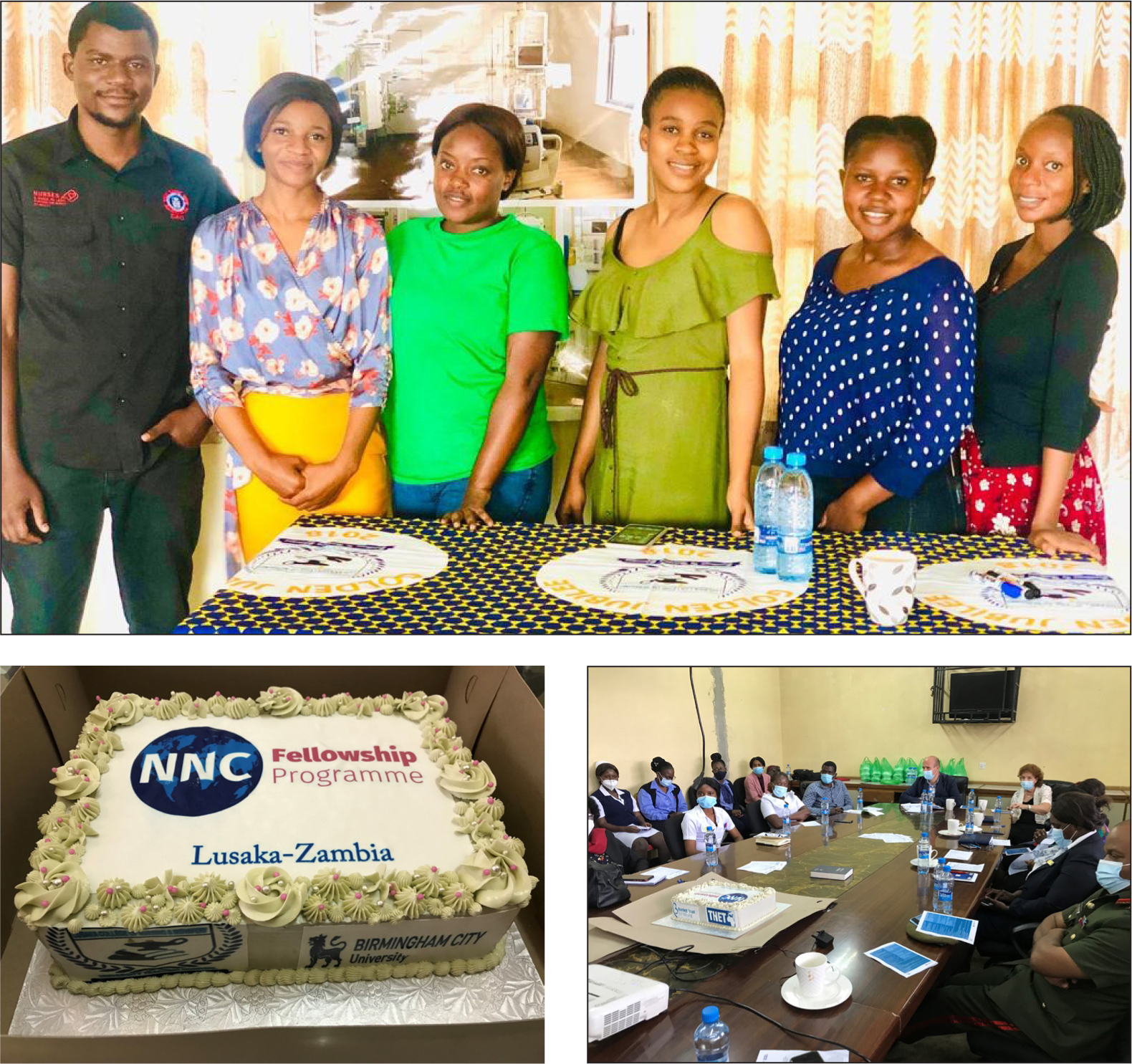The Nursing Now Challenge has been designed to continue the Nightingale Challenge, moving forward and passing on the baton of leadership to the next generation of nurses (Nursing Now Challenge, 2022).
The Nursing Now Challenge Fellowship (NNCF) is an international programme that aims to build the leadership skills of early career nurses and midwives in Africa and Asia. Through this programme, the Lusaka College of Nursing/Birmingham City University (LUCON/BCU) health partnership has been awarded a grant to support six fellows from five hospitals, building upon a series of successful partnership projects that commenced in 2015.
The partnership identified the NNCF programme as an opportunity for projects to move from strategic level to supporting nurses at the bedside. This will raise the profile of specialist practice, early career nurses and pioneer changes in roles and functions in fellows' areas of practice. This is one of a range of programmes designed by the partnership to enable nurses in practice to take control of their careers as they work to enhance and extend practice.
Prior to the COVID-19 pandemic, Zambia embarked on a programme to develop specialist practice in priority areas. In consequence, specialist nursing is relatively new, however, it has provided nurses with opportunities and career development. It is also important to note that, although numbers are gradually increasing, there are currently few specialist nurses in senior leadership positions.
Our focus as a partnership has been on developing and capacity building specialist nursing practice, and the NNCF provides an opportunity to invest in strategies and opportunities that will enable junior nurses in the areas of the fellows' specialties, such as critical care, emergency and trauma, and operating theatre nursing, to identify and develop their leadership skills. Therefore, we have focused on recruiting early career specialist nurses from emergency and trauma, operating theatre and critical care settings. This will enable them to ‘grow into future leaders in nursing’, seeing and following a career structure for themselves. Investing in early career nurses is crucial because it will help embed operational leadership in practice and lay the foundations for future senior nurses.
‘The partnership is committed to developing the fellows and has recruited NHS nurses working in the fellows' areas of practice who are providing virtual mentorship’
Quality improvement
The NNCF includes a leadership programme and a quality improvement project. While the NNCF links fellows with peers across Africa and Asia, our partnership decided to enhance the leadership programme through input from Zambian and UK nurse leaders in practice.
This has allowed the fellows to explore a range of topics, including international nursing perspectives, conflict resolution and becoming more effective operational leaders. The quality improvement element of the programme requires each fellow to identify a specific nursing topic to explore. The key themes for the quality improvement projects are to improve patient care and increase nurses' knowledge.
Although the fellows work in different hospitals, their projects are complementary and include:
- Exploring the knowledge of nurses' working in an emergency department, and how they assess and treat pain
- Enhancing the knowledge and understanding of oxygen therapy by registered nurses working in critical care
- Enhancing the nutritional intake of inpatients with head and neck cancer, who are at risk of poor nutrition
- Expanding operating theatre nurses' knowledge in preventing postoperative wound infections in the perioperative phase
- Developing and evaluating an orientation programme for new staff, with a focus on resuscitation training.
There will be an added bonus of maximising the available resources, so that departments become more effective. The partnership is committed to developing the fellows and has recruited NHS nurses working in the fellows' areas of practice who are providing virtual mentorship for projects. In addition, it is recognised that because these are early career nurses Zambian nurses have offered to act as local mentors and offer context-specific support. This is supporting knowledge exchange for the fellows and enables UK/Zambia mentors to support the personal and professional development of all those involved (Notter and Carter, 2021).
Our fellows are based within specialist practice, and this programme will foster the next generation of leaders and enable them to guide their peers. They are committed and enthusiastic, and have embraced the philosophy that underpins this programme. We look forward to showcasing the outcomes for their projects and demonstrating what Zambian nurses can achieve.



